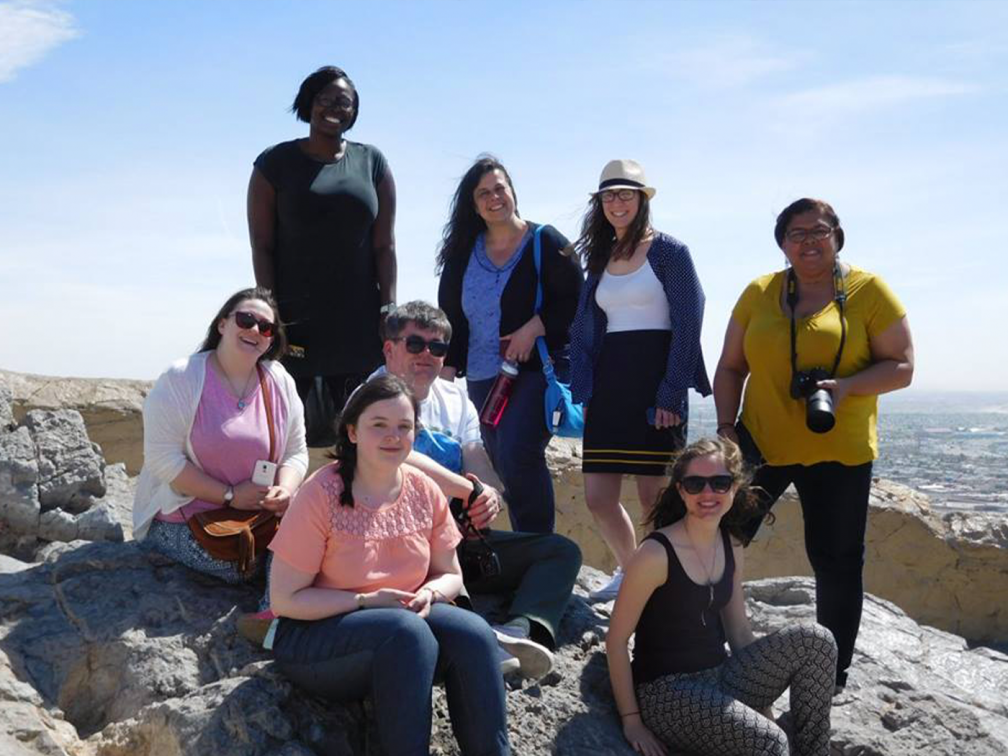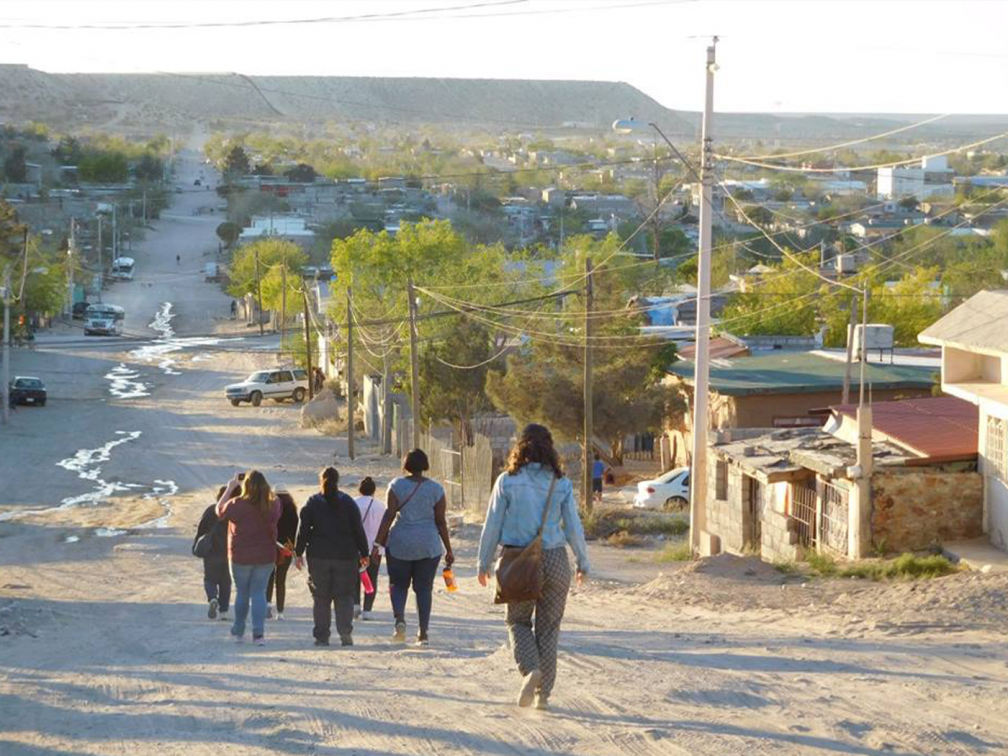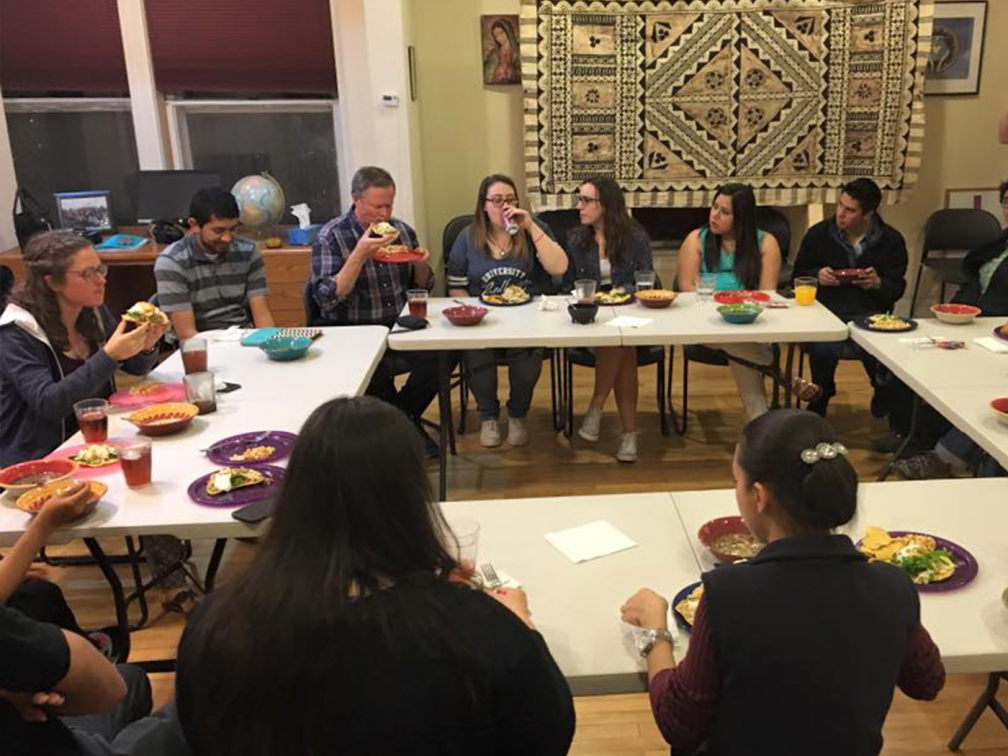I am in no way green-fingered. In fact before this trip, I would have declined any invitation to water plants, pull weeds or even sweep the driveway. So imagine my delight when Columban Fr. Bob Mosher informed us that we would be tending to the local community garden, doing all the aforementioned tasks and more.
We set off at 9am and Fr. Bob (quite efficiently might I add) organised us into smaller groups with specific roles. We dug up weeds, collected rubbish, watered plants, harvested greens and raked soil for just over two hours. Although I may have initially been sceptical about how enjoyable this experience would be, I can gladly say that in the end it was immensely rewarding. Harvesting arugula, spinach and kale reminded me of the talk Fr. Bill Morton gave us the day before. He told us of the importance of tending to our Earth and recognising that this type of welfare was as valid a mandate as caring for those less fortunate than ourselves.
In addition this incentive, this activity had special significance as we were tending to the garden for the benefit of refugees, asylum seekers and undocumented migrants living in Annunciation house. This was a place where they could see the fruit of their own labour and possibly even offer a seed of hope that their situation would eventually improve – just like the quality of the lives of the plants in the garden.
Later on in the afternoon we made the highly anticipated trip to Rancho Anapra, Juarez. All week we had been told several stories about this infamous city, many of them quite harrowing. We had heard about the hyper-violence of 2010 and the many femicides and kidnappings of teenagers. We solemnly contemplated our own consumerist culture after hearing about the terrible conditions of some of the maquiladoras and the history of corruption. Whilst we crossed the border, many of us seem to contemplate how we would match these stories of the past with the present reality of the city.
The journey across the border was relatively stress-free. We arrived in Juarez a little after 3pm and were treated to a quick tour of the town. The thing that struck most of us was the stark difference in infrastructure between Anapra and El Paso. In addition to this was the plethora of stray dogs on the streets; something we’d soon learn was a familiar sight in Mexico.
After this we visited the border fence separating Juarez from Mexico. This was quite a surreal experience and one that provoked us to truly contemplate the realities of living on the other side of the border and consider the advantages and disadvantages of living on either side. One thing was for sure, no matter what our musings may be, we could never imagine the desperation and hope one needed to make that brave decision to cross the great divide.
At around 4.30pm we made our way to our lodgings for the night and were introduced to Sai, a Fijian Lay Missionary living and working in Rancho Anapra. She had kindly offered to have the female members of the group as guests for the night while Mark and Fr. Bob stayed just under five minutes away at Fr. Kevin’s house. We dropped our luggage at her house and she briefly told us about her time as a missionary in the Philippines and her experiences working as a lay missionary in Juarez. Although some of the things she told us were quite harrowing, she also spoke of the resilience of the community in the face of past tragedy and the negative stereotypes attributed to residents of the city. Her statements and the kindness and generosity of all we encountered certainly helped to quell these rumours.
That evening we attended a Maundy Thursday Mass and had the pleasure of experiencing the service entirely in Spanish. Although at some points we may have felt a little disorientated by the language barrier, it forced us to all consider the challenges some migrants may experiencing when trying to connect with fellow believers in a country where services are in a language they do not understand. It also showed how far a smile, a hug or even a nod of acknowledgment can go. These simple gestures from members of the congregation truly helped us to feel comfortable and welcome. Most significantly, these gestures made us feel like these people were genuinely glad to see us.
After Mass, Sai took us to her friend’s house to have dinner. On arrival, we were greeted to a healthy portion of traditional enchiladas. The hospitality and generosity of spirit shown to us by her was truly humbling. Out of the little she had she had chosen to ensure that we were well-fed and comfortable. I was challenged by her kindness and thought about how I could imitate this more in my own life.
Despite all that I had been told about Juarez, I am happy to say that I can speak of a city filled with a special type of people. I know the people of Juarez to be a kind and gracious people, a people who are striving to live out the Gospel in all their interactions, a people who are kind towards strangers and filled with an overwhelming sense of generosity. I saw the face of Jesus in so many of the people I encountered today and was reminded of God’s commandment for us to love our neighbours as we love ourselves



